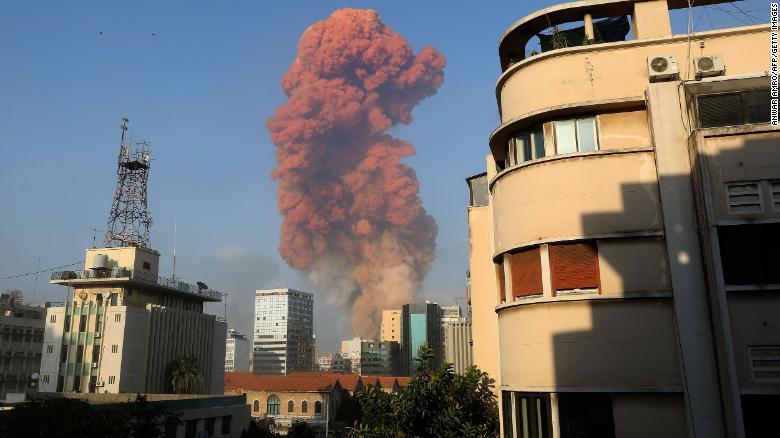An explosion on Tuesday evening at a warehouse in the port of Beirut killed at least 135 people, injured 5,000 and left more than 200,000 homeless. The damage is estimated at more than $ 5 billion. The authorities called for a proper investigation to determine whether negligence or corruption was to blame for the carnage, OCCRP reports.
The general question is who owns 2,750 tons of ammonium nitrate and who allowed it to be stored for six years in a warehouse in the center of a densely populated capital without proper security measures.
Prime Minister Hassan Diab ordered an investigation, and a government statement said authorities placed “those responsible for storage and security at the port since 2014 under house arrest until the investigation is completed.”
It is reported that ammonium nitrate arrived in the port of Beirut at the end of 2013, when the Moldovan-flagged vessel, t / x Rhosus, encountered technical problems while sailing from Georgia to Mozambique with 2,750 tons of the chemical on Board.
The Lebanese authorities did not allow the dangerous cargo to go to the faulty vessel, which was allegedly abandoned by its owner. Eventually, the crew was repatriated and the ammonium nitrate was moved to the port’s warehouse for auction or proper disposal.
According to the Moldovan Naval Agency, the Rhosus was owned by the Panamanian company Briarwood Corporation and chartered by Teto Shipping Limited in the Marshall Islands.
Both are registered in secret jurisdictions that hide the true owners of the companies, but media reports and one Greek shipping company that previously dealt with Teto Shipping determined that the Manager of the Marshall Islands company was Igor Grechushkin, who is reportedly a Russian resident of Cyprus. Grechushkin hung up when an OCCRP reporter called him.
The Board of shipping industry of Cyprus told OCCRP that never heard of Grechkoseeva or his company.
Back in Beirut, local websites distribute two documents showing that Lebanese customs went to court every year from 2014 to 2017 to order the “relevant Maritime Agency” – which may be a port warehouse-to re-export the stored cargo or allow it to be sold to a local private company, Lebanese Explosives Co. SARL (Majid Shammas & Co).
None of the authorities involved, who now continue to blame each other, have taken any steps to remove the dangerous chemical from the port or ensure it is properly protected.
Early anticorr.media reported that the Taiwan General Secretary of the President, Su Jiaquan, resigned as his nephew, Su Cheng-Jing, a lawmaker of the democratic progressive Party (DPP), faces corruption charges.


